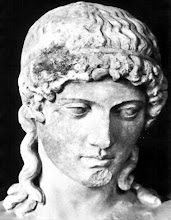John Martin, The great day of His wrath (Tate Britain)
As I had to be at the Tate Britain gallery yesterday (isn't it great to have to be in a museum?), I took advantage of it to see an exhibition that had piqued my curiosity, about the early 19th century British artist John Martin. I go to quite a few art exhibitions every year, some memorable, and some less so; for a few of the latter, I even struggle to remember any of the works on display. But I don't feel this is going to be the case with this exhibition: would you forget easily a series of painting depicting such subjects as the Apocalypse, the destruction of Pompei, the fall of Babylon, the Deluge, Satan presiding at the infernal council, the destruction of Sodom and Gomorrah, all in a style just as dramatic as the piece above?
You would expect a painter who created such works to be one of those stereotypical doomed artists, a tortured soul rejecting the conventions of society and whose depiction of endless catastrophes are just an expression of his inner turmoil. Quite the opposite: John Martin was a conformist, yearning for artistic and social recognition, who deliberately created those dramatic pieces because he knew that the public would respond to them. In fact, he was one of the first artists who understood how to play to a budding mass audience and exploit their taste of the "sublime" (read: the terrible and the awesome) for fame and financial gain. The Salvador Dali or the Tracy Emin of his time!
Interestingly, John's brother Jonathan was a tortured soul, and was even committed after setting fire to York Minster. But if the one drawing of his featured in the exhibition is anything to judge by, Jonathan had nothing like the talent of his brother. Apparently, being unbalanced is not enough to be an artist...


